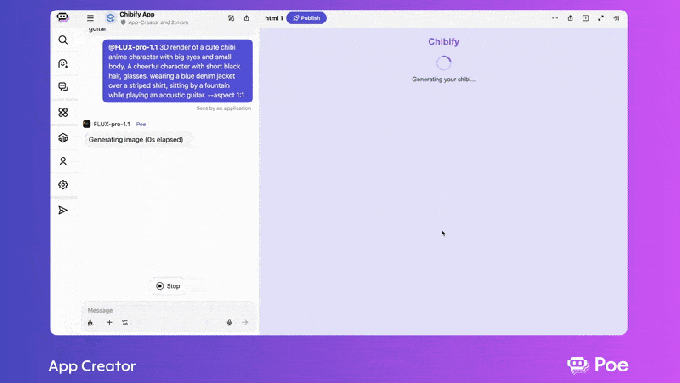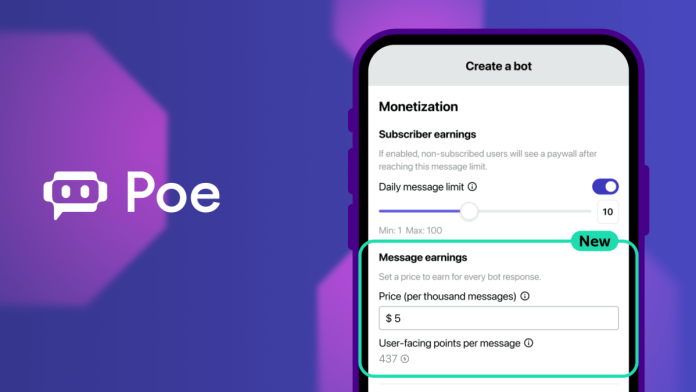Poe, Quora’s platform that brings together a number of AI models under one roof, has launched a new capability that lets users build visual interfaces — apps, essentially — on top of any combination of models.
Called Poe Apps, the feature allows Poe users to describe the app they want to create in the new App Creator tool. Descriptions can include mentions of specific models they want the app to use — e.g. OpenAI’s o3-mini, or Google’s video-generating Veo 2 — or broader, more general specs.
App Creator, which is powered by Anthropic’s recently released Claude 3.7 Sonnet, translates the description into code for the app interface along with custom logic expressed in JavaScript. Poe Apps can run side-by-side with Poe’s chatbot window or be entirely visual, and their underlying code is exposed for manual adjusting and fine-tuning.
Quora created a few example apps, including an app that transforms photos into 3D anime-style art using OpenAI’s GPT-4o and Black Forest Labs‘ Flux-Pro-1.1. Another example app removes unwanted objects from images, leveraging Bria’s Bria-Eraser model.
Poe Apps can be shared with other Poe users, only on the web for now (iOS and Android support is on the way, Quora says). Each time an app uses an AI model, it’ll draw from a user’s point balance with Poe. Free users receive a daily point allotment, while users subscribed to Poe’s $9.99 per month premium tier get flexible daily or monthly point packages.

In a blog post, Quora, which noted that App Creator is available at a reduced early-access price for a limited time, hinted at possible app monetization options.
“This is an early launch and we have a long roadmap ahead to give creators even more power, including the ability to earn money directly from their apps,” the company wrote. “We are excited to see what you all create. And we are excited to see how much better we are able to make Poe Apps as the models continue to get better at writing code this year.”
Poe Apps, which expand on the web apps feature Poe launched last July, are a lot like Anthropic’s Artifacts and OpenAI’s ChatGPT Canvas tools: dedicated workspaces where users can edit and add to AI-generated content like code and documents. While the apps these types of tools can produce are rather limited, they certainly demonstrate how far models’ programming capabilities have come.




